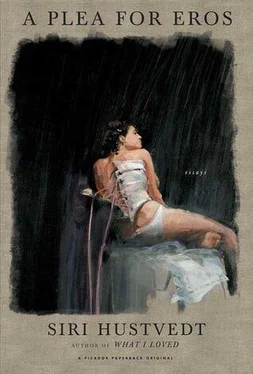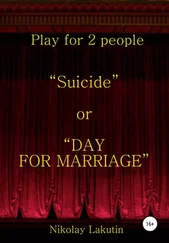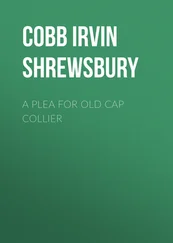And every night I read to her. We have made our way through innumerable books, all fourteen Oz books, five Anne books, the Narnia series, all the Moomintroll books, E. Ncsbitt and Lloyd Alexander and fairy tales from all over the world. Reading is a ritual that is itself associated with place, an event that happens after her teeth have been brushed and before she sleeps. No malter how harrowing tfae tales Oi how deep the identification (Sophie gasps, shudders, and, on occasion, sobs loudly during our reading), her body at least is securely in its bed. It may be that the singularity of place within the ritual is exactly what makes the sadness, fear, and excitement of these stories not only bearable but pleasurable. Repetition within ritual creates order through time, comes closer to the truth. Children, especially, long for wholeness, for unity, perhaps because they are closer to that early, fragmentary state before any “self is formed, or perhaps because they are truly not the masters of their destinies. And although divorce is commonplace enough and often benign — without open rancor between parents — going from here to there can become a form of being nowhere. The child finds himself yonder in a land between father and mother. Because “home” is more than a place to park the body, because it is necessarily a symbolic landscape, what can it mean to have two of them? Two homes inevitably contradict each other, always in small ways, sometimes in big ones. What happens if the words spoken in one place contradict the words in the other? Where does the child reside then? And what does it mean for that child’s relations to the symbolic world in general — to language itself as the expression of truth, of all meaning? When Daniel was in the second grade, he invented a place he called the “Half-World.” I think it was in outer space, and all the people who lived in it were literally cut in two. He wasn’t old enough to know why he had concocted this place, but when he told me about it, I suffered a sharp, terrible pang of recognition. I asked him if those people could ever be put back together again. He said yes. And I think he was right. There are ways to sew the Half-World together again, even though it is impossible to change its torn history. Daniel takes photographs, and some of them are remarkable. Many of them are images of places he has isolated in ways I would never have imagined. When I look at his shadows cast on sidewalks, his mirror images in windows, the cracks and ruined lines on his doors of abandoned houses, or the invasive vines that blur the architecture of a small building, I know that these pictures are threads of himself. He sews with his camera and in the darkroom. And no matter how derelict his subjects are, there is radiant order to each and every picture. They are precisely framed. Every line, every shadow, is exactly where he wants it to be.
A photograph of a place is not a real place any more than a book is, but we inhabit photographs nevertheless as spectator or as identifying actor. Words are more abstract than images, but images are inevitably born of them. The pictorial drama of reading corresponds to the one of writing. You cannot have one without the other. Reading is active, but writing is more active. Making fiction is making a place for the reader in the text, and this brings up the eternal question of making a book: what to put in and what to leave out. One can argue that there are two kinds of writers in the world: the ones who put it all in and the ones who leave a lot of it out. Sweeping claims can be made about history and these impulses. Inclusion and volume can be understood as a literary idea that began in the eighteenth century, developed in the nineteenth, and lasted through Joyce. (He may have turned literature on its head, but he kept a lot in.) Exclusion, too, can be seen as essential to late modernism, most notably Kafka and Beckett. But these are not useful categories “here.” (The reader is “here” with me if he or she has come this far.) There are times when a detailed description of a living room and all its furnishings is annoying, when it gets in the way of reading, and then there are times when it does not. Austen is spare in description. Had she described every object in the Bennet parlor, Paul never would have squeezed in his New Jersey living room among all that clutter, and it seems to me the moral resonance of that book would have been partly lost. On the other hand, I cannot imagine Dickens without his full descriptions of places — the stinking Thames and Mr. Venus’s ghastly workshop in Our Mutual Friend, for example; but these descriptions, like Sterne’s clock in Tristram Shandy, are always to a purpose. They accelerate the book. They don’t bog it down in pointless novelistic gab. Good books usually say enough about where they happen, but not too much. Enough can be more or less, but it’s bad books that treat the reader to his expectations about what a novel or a story or a poem is or where it is. There is something comforting about bad books, which is why people read them. Surprise can be a wonderful thing, but, on the whole, people don’t want it, any more than most children want their rooms changed. They want what they already know to be confirmed, and they have been richly supplied with these fictional comforts since the late eighteenth century, when the novel became popular with the rise in mass literacy. But the good reader (a quality not at all determined by literary sophistication) wants room to fill in the blanks. Every reader writes the book he or she reads, supplying what isn’t there, and that creative invention becomes the book.
For the past four years I’ve been writing a novel set in my hometown, or rather in a fictional version of Northfield. The town in the book is not the real town, but it resembles it strongly. It has another name, Webster, and although it resembles the real town, its geography is askew. I have taken real places — the Ideal Cafe, the Stuart Hotel, Tiny’s Smoke Shop, the Cannon River, and Heath Creek, with their names intact — but I relocated some of these places and gave them new inhabitants. Oddly enough, these changes weren’t made for my convenience, and I didn’t make them without seeing them in my mind first. The collapsing and shifting of that known landscape came about because it “felt right.” The map of fictional Webster isn’t identical to the map of Northfield, because the one departs emotionally horn the other. Since I began writing the book, I have been back to Northfield several times, every Christmas and once during the summer. When I walk past the Ideal Cafe, where Lily Dahl, the heroine of my novel, works, I don’t feel much, I find myself looking closely at it, examining the windows on the second floor, behind which is Lily’s imaginary apartment, but it just isn’t the place I made for myself in fiction. That place exists in memory, but it isn’t “real” memory. My best friend, Heather Clark, and my sisters Liv and Astrid all worked in the Ideal Cafe in the 1970s, when it was in its heyday, and they told me stories about their customers. I stole some of them. I have eaten breakfast and lunch and wolfed down pieces of pie in the Ideal Cafe, and I think I remember pretty well what it looked like when I was in high school, but the imaginary cafe where Lily works has supplanted the one I remember and become more “real” to me. Writing fiction is like remembering what never happened. It mimics memory without being memory. Images appear as textual ground, because this is how the brain works. I am convinced that the processes of memory and invention are linked in the mind. Homer evokes the muse of memory before beginning his tale. And the ancient memory systems developed to enhance recollection were always rooted to places. The speaker wandered through houses in his mind, either real or invented, and located words in various rooms and objects. Cicero articulated an architecture of memory dependent on spaces that were well lit. Murky, cramped little hovels wouldn’t do as spatial tools for recollection. Every new draft of a book is the work not only of shrinking and expanding and shrinking again but of finding the book’s truth, which means throwing out the lies that tempt me. This work is like dredging up a memory that’s been obscured by some comfortable delusion and forcing it “to light,” a process that can be excruciating. Fiction exists in the borderland between dream and memory. Like dreams, it distorts for its own purpose, sometimes consciously, sometimes unconsciously, and, like memory, fiction requires an effort of concentration to recall how it really was. There have been a few extraordinary books written in the present tense, but by and large it’s an awkward form. Fiction usually takes place in the past. Somehow that’s its natural place.
Читать дальше












